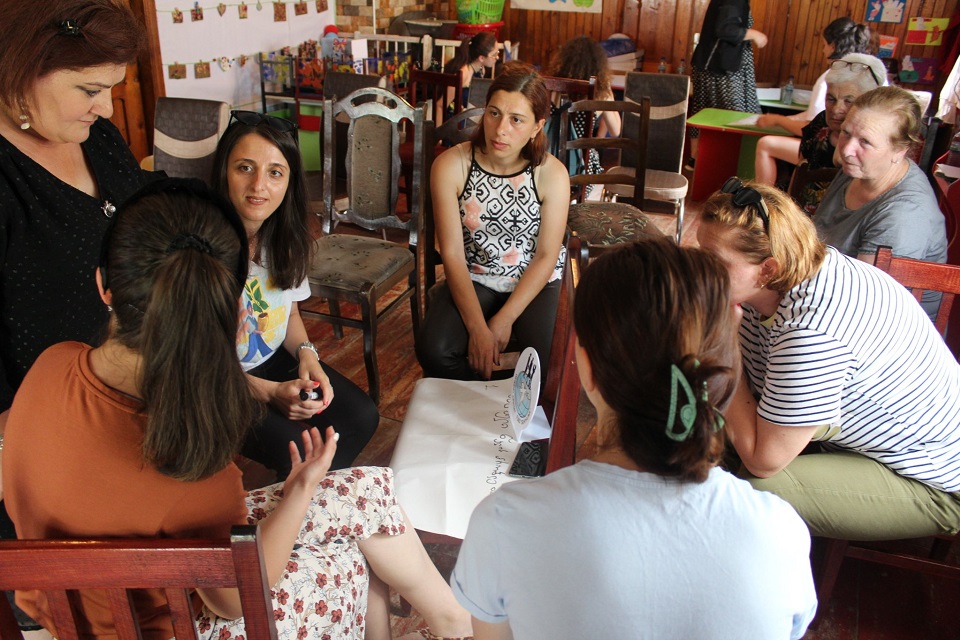Displaced women leaders and those living along ABLs involved in the Women, Peace and Security Agenda
Date:

Ensuring the participation of women and the youth is crucial for the effective implementation of the Women, Peace and Security Agenda. Since 2020, UN Women, with the support of the UK Government, has been taking active steps in this direction. Among these efforts, the key focus remains on the localization of the National Action Plan within the implementation of the UN Security Council Resolutions on Women, Peace and Security.
Significantly, such localization is presently taking place with the participation of internally displaced and conflict affected women living along Administrative Boundary Lines (ABLs). In order to enhance meaningful participation, UN Women has been conducting a series of training courses for female community leaders, together with its CSO partners: the IDP Women Association “Consent”, the Women’s Information Center and the Women Fund “Sukhumi”. Thus far, 200 local women leaders have completed such tailored training across the 17 target municipalities.
The course itself is based on 12 learning modules, covering issues related to women’s rights, gender equality, human rights, conflict prevention, resolution and peacebuilding, and women’s political participation, civic engagement, leadership and advocacy.
“We completed the training course, which served as an incentive for us to address the problems that have accumulated in the villages near ABLs since the August War in 2008,” says Maguli Okropiridze, who lives in the village of Ergneti, located within the Gori municipality in the region of Shida Kartli. “This course equipped us with new experience and enthusiasm. The unity of motivated women is really very important.”
It should be noted that after completing the training, 140 female leaders conducted a community needs assessment from a gender perspective in IDP settlements and villages adjacent to the ABLs. The questions of which related to infrastructure and the availability of various services, as well as human security, especially that of women. A total of 583 questionnaires were prepared and are currently being analysed. In the next stage, the needs and challenges identified as a result of the assessment will be presented to local and central governments for advocacy purposes.
The localization of the National Action Plan for the implementation of the UN Security Council Resolutions on Women, Peace and Security as well as the training of women leaders are part of the UN Women “Accelerating Implementation of the Women, Peace and Security Agenda in Georgia” project, generously funded by the Conflict, Stability and Security Fund of the UK Government.